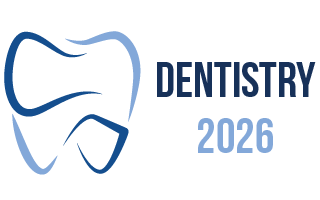3rd European Conference on
Dentistry and Oral Health
May 20-21, 2026 | Barcelona, Spain

Address: Avinguda Del Maresme 78 Ronda De Dalt Exit 15, 08940 Comellà de Llobregat, Barcelona, Spain
Dentistry 2026

The International University of Rabat, Morocco
Abstract:
Introduction:
Cleidocranial dysostosis is an autosomal dominant inherited condition. Unerupted permanent teeth, supernumerary teeth, and overretained deciduous teeth as well as delayed eruption of teeth, malocclusion, and impacted teeth arc the causes of aberrations in the development of the dentition. Many of the permanent teeth fail to erupt, although permanent teeth that have no deciduous predecessors, such as the molars, usually erupt normally. There is almost total absence of cellular or secondary cementum in all examined teeth.
Materials and methods:
using a case report, we present a 24-year-old female patient, diagnosed with cleidocranial dysostosis. A full clinical and radiographic examination has been done
The patient a 24-year-old white female of Moroccan parents. she was of small stature. She was mentally alert, appeared to be of normal intelligence, and had a physical defect.
She was a complete aplasia of the clavicles and associated funnelling of the rib cage towards the thoracic inlet.
Résultats: This disorder was first reported in medical literature in 1765. Marie and Sainton described the condition in 1898 and gave it the name “cleidocranial dysostosis. The aetiology of the failure of eruption of the dentition in cleidocranial dysostosis is of immense interest as like all disease processes, the abnormal may illuminate the normal.
General physical findings: the closure of the fontanels and sutures in the cranium is delayed, sometimes throughout life. Frontal, parietal, and occipital bossing is present, and the skull is wide and short (brachycephalic) with slight depressions along the suture lines
Conclusion: Cleidocranial dysostosis is an autosomal dominant. The diagnostic was based upon a clinical and radiographic examination. The coordination of treatment planned in stages by several disciplines within dentistry
Biography:
Dr. Soukaina Abidi is a distinguished academic and researcher affiliated with the International University of Rabat (UIR), Morocco. With a strong passion for innovation and education, Dr. Abidi has contributed significantly to her field through research, publications, and collaborations.
